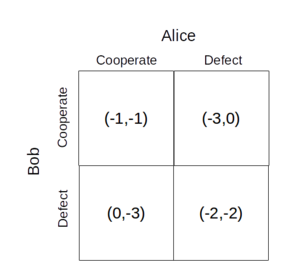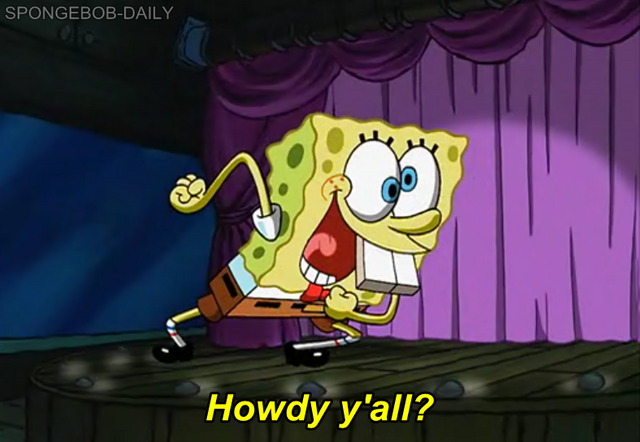
In short... No, @HavikPrime, prejudice is not a mental disease.
Hoooooooooooo boy. Racism. Is it time to annihilate my channel already? I can’t imagine a topic more likely to ignite a flame war and divide my audiences than this, but here it goes.
Racism is both a hot button issue, and something you really aren’t supposed to talk about. If you speak about it on either side of the political aisle, you are going to get flak, either from your own side or the opposing side, and the reasons can either be… well, reasonable, or complete balderdash. All in all, I agree with Morgan Freeman when he states the best way to defeat racism is to stop talking about it. But since people still are talking about it to this day… I thought I would throw in my own two cents, and let the chips fall where they may. Don’t expect me to be talking about this subject much after this post, as I have no plans to.
So, this is a pseudo response blog to this blog(https://www.minds.com/HavikPrime/blog/prejudice-is-a-mental-disease-904458136312455168). I say pseudo because the blog I am technically responding to is a long, rambling post that spends the majority of it’s content virtue and intellect signaling(I will explain that second idea in another post at some point) while talking mostly about the NPC meme brainwashing people and how the left wing is fundamentally better than the right wing. In my opinion, it’s a bad article that doesn’t do a great job of actually supporting it’s point, as it assumes intentions on groups of people with no evidence while making jumps in logic that leads to the absurd conclusion that memes, like the NPC meme, are being used to brainwash stupid people to become white supremacists. That’s not even an exaggeration, go read it if you wish.
I looked back through it, and Prejudice is never mentioned by name in the actual content of the article, only the title. I found that so hilarious, I just had to share that tidbit.
But the title specifically… “Prejudice is a mental disease”… I actually think the opposite is true. Prejudice is a perfectly logical conclusion people can reach. Allow me to explain.
I have actually met people who don’t like certain races. It’s rarely due to some meme or a news narrative, it is usually based on evidence. They see videos of a race committing violent crimes, they work jobs where anyone of a certain race never leaves them a tip or is more trouble than other customers, or they see statistics that say certain things about a certain race. Now, if a certain race popped into your head when I listed all of that, does that make you a bad person? Probably not, as the average person will probably recoil and jump to that hypothetical race’s defense. But why? Why are you defending a group that I haven’t even explicitly disparaged? Keep that thought in mind as we continue.
This is an issue I’ve seen in people trying to debate the Alt-Right. They are determined to deny that there are trends and differences between races, which there patently are. Evidence supports this, and most people are at least subconsciously aware this is the case. This is where racial stereotypes originate from, as a generalization against an entire group simply won’t stick unless there is at least some truth to it.
A simple but major point worth noting is that correlation to a stereotype can vary drastically by locality. A certain area might have extremely high correlation, while other areas will have extremely low correlation. This can affect prejudices by area, as people will naturally draw conclusions over the course of many separate interactions with the same race. Those conclusions might even influence behavior, such as having certain races shadowed in stores in an attempt to prevent theft following a series of thefts committed mostly by the same race. You might think this is intolerant, maybe even unfair, but using previous experiences to direct future preventative measures is anything but irrational. In fact, in the case of local group dynamics, it might make the prejudiced more capable of predicting behavior than the woke anti-racist.
Here’s an analogy; there is a saying, “Don’t judge a book by its cover.” This applies to books, but is also often used in reference to people to say don’t assume they have certain attributes based solely on their appearance. But the thing is, we judge both books and people constantly on their appearances.

Exhibit A: Empress Theresa
Now tell me, do you think this book is a fantastic, highly polished narrative? You probably don’t. But why? That’s just the cover, why are you preemptively judging the story? Well, spoiler alert, the story as well as the cover are two notoriously bad artistic creations, and there have been multiple videos created on the subject that can be found with a quick search if you are interested. But here’s the thing; an amazing story could have been represented by a lousy cover. It’s just such an occurrence is less common than there being a certain amount of correlation between cover quality and content quality, which is what leads people to choose books based on covers that are more well made. Interestingly, it also leads creators to put some extra effort into their covers, as that is what will represent a person’s first impression with their work. That could be analogous to an individual practicing good hygiene and dressing well to garner a good first impression, but let’s not get off topic or stretch this analogy too far.
Before anyone jumps down my throat, I’m not suggesting that certain races are “bad covers” for people, and show low moral character at a glance. I’m saying a race usually becomes associated with certain characteristics that will always apply to varying degrees to the actual individual; maybe there is strong correlation, maybe there is none. But the point is there is evidence to suggest some correlation of attributes to their race is more likely than not. And that is where I think people divide themselves into anti-racists and pro-racists, not understanding what all of this actually means.
I think a better saying is “Don’t judge a book ONLY by its cover.” If you have to hire a person and the only information you have is their race and their gender, then there is nothing irrational about picking someone based on racial stereotypes. But also just like picking a book solely by its cover, you are playing the odds. A better solution is to get more information, such as work history, professional references, educational background, and behavior during an interview. That is why all capable employers do this rather than hiring based on race… well, also because basing hiring decisions on racial background or gender is illegal within the US…
That’s the crux of why people react so emotionally to suggestions that races have different general trends with behavior. People see an attack against the group as an attack against anyone they know who is within that group. But that isn’t quite true, as an insult against a group is just that; a generalized insult to a generalized group. The average person, an aggregate of our preconceived notions, doesn’t actually exist in reality. It’s a strawman being erected solely to be attacked, and while this is a logical fallacy in more academic discussions, it doesn’t actually hurt the individuals in the group unless they allow it to. There is a difference between attacking a group and attacking a person, just like there is a difference between rhetoric and physical violence. If you want to defeat racism, which I believe is fundamentally an over-generalization of racial stereotypes, the solution is certainly not conflation of terms further. I think the solution is refinement of what you are saying. If you want to defeat the racism that’s defined as any sort of observation about race, then I’m sorry to report that trying to disable pattern recognition in humans is simply not possible without also destroying the ability to learn in general.

Exhibit B: The Prisoner's Dilemma
There is a kind of prisoner’s dilemma with racism that I actually credit with the rise of the alt-right. For those who have never heard of the prisoner’s dilemma, it goes like this. There are two conspirators who committed a crime and were caught. If neither betrays the other, they both serve 1 year. If they both betray each other, they both serve 2 years. However… if one betrays the other, and is not betrayed, then they go free while the other serves 3 years. It is worth noting that betraying their conspirator is completely rational via the very clear incentive to do so, despite the fact that both would be better off overall if they didn’t betray each other.
The way this works with racism is by… well, being racist. By favoring members of one’s own race over any others, and pursuing policies that benefit that race. It’s easy to understand, as people are inherently tribal as a survival tactic. But let’s say one group is specifically anti-racist. They don’t factor in racial categories when making decisions. All it takes is a single other race to act as a majority for their own interests, and suddenly you have the anti-racists being systematically punished for being anti-racist. What’s worse, this can happen all while no one is actually targeting the anti-racists specifically, they are simply giving more opportunity to their own race. See how this goes? Unless everyone is anti-racist, the anti-racists will be at an inherent disadvantage. If your fellow man has already betrayed you within this prisoner’s dilemma, what’s irrational about punishing them for that action?
Though this might sound odd, I think a way to diffuse this dynamic is by following the example of Spongebob, which is also mirrored in the movie Zootopia. Please allow me to explain for dismissing this as ridiculous outright. You’ve come this far, after all.

Exhibit C: Spongebob telling a squirrel joke
Going back to that earlier point about defending a group I didn’t even name. I think people do this precisely because they see it as not just an attack against one group, but an attack of one group against another. People are reasonably wary of this, as they see it as dehumanization. The solution I believe is, slightly hilariously, represented in an episode of Spongebob Squarepants called Squirrel Jokes. To allow all groups the exact same protections, and lack thereof. If you can make fun of one race, you can do so with all races, and frankly should. If a person’s group is disparaged, but so is every other group, then who really cares? It cements the idea that these are just words, jokes, and most importantly, over-generalizations.
Zootopia illustrates a similar concept. At the beginning of the story, everyone acts in a way that acknowledges differences in species(which is used as an analogy to race in the movie), and the main character initially tries to downplay these differences by insisting everyone is the same in capability. She finds this to be simply untrue, and even adopts some species-ist beliefs during the runtime of the movie. However, at the end, she realizes that while trends might indeed exist, it is immoral to dismiss anyone based on their species. So does she become super anti-species-ist? No, she just doesn’t dwell on that fact, and even makes species-ist jokes with her new partner while being okay with him doing the same. They use humor to eliminate this tension, and acknowledge that the fact they are different from each other doesn’t mean either of them are inferior.
If someone is legitimately a racist, you can’t change their mind simply by telling them they are immoral. The best thing you can do is to show them an instance of the race they despise acting in a way they would approve of, thus fighting against all the negative examples that created their prejudice in the first place. Another option is to make jokes about the race they are part of in addition to other races, encouraging them to feel free to do the same, so they can see how over-generalizations applied to them are just as cartoonish and one-dimensional as ones they might apply to other groups of people. Finally, you could respectfully disagree with their positions, but make sure they are aware that punishing anyone based on group affiliation could easily be turned back on them; thus, from a purely selfish perspective, they should give any individual the benefit of the doubt.
Overall, I think that’s a much more nuanced position than stating anyone who thinks differently from me is mentally deficient.
This Post on Minds